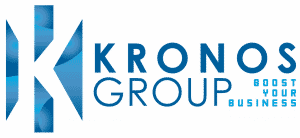The future of sourcing, procurement, and inventory management: Key trends to look out for

Summary
The future of sourcing, procurement, and inventory management is rapidly evolving, with new trends and technologies emerging constantly and consistently.
To stay competitive, businesses need to embrace digital transformation and adapt to utilising artificial intelligence and machine learning, which can increase the efficiency of sourcing, inventory management, and procurement significantly by minimising manual effort.
Collaborative supply chain management is also a contemporary approach organisations can utilise to update their procurement functions and keep up with modern procurement practices while mitigating procurement-related risks.
Big data analytics is another transformative technology that is having a considerable impact on the future of procurement functions and can offer businesses the insights they need for informed decision-making.
Leveraging these trends and technologies allows organisations to optimise their supply chain operations, reduce costs, and improve efficiency and performance.
Procurement activities, including sourcing as well as complementary functions such as inventory management, have become critical functions for organisations to remain competitive in a rapidly evolving business landscape.
Procurement, much like most other sectors, is undergoing a phase of rapid transformation, with technology rapidly evolving and new trends emerging.
It is essential for organisations to keep up-to-date with the latest developments, as failing to do so could result in them losing their competitive edge to more flexible and active competitors.
In this blog post, we will explore the key trends that you need to look out for in the future of the procurement function, including specific operations such as sourcing and managing inventory.
Digital transformation
Digital transformation has been a buzzword for several years, but it is still a crucial trend in the future of sourcing, procurement, and inventory management.
Many companies are still using outdated systems and manual processes to manage their supply chain, which can lead to inefficiencies, errors, and increased costs. By embracing digital transformation, businesses can streamline their operations, automate processes, and gain real time visibility into their supply chain.
One way that businesses are embracing digital transformation is by implementing cloud-based procurement software. Cloud-based software provides real-time data and analytics, allowing businesses to make better-informed decisions.
In addition, cloud-based software can improve collaboration between suppliers and buyers, which can lead to better relationships and improved performance.
Artificial intelligence and machine learning
Artificial intelligence (AI) and machine learning (ML) are already transforming the sourcing, procurement, and inventory management landscape.
These technologies can automate many routine tasks, allowing employees to focus on more strategic activities. For example, AI and ML can be used to identify and predict demand patterns, optimise inventory levels, and automatically reorder products when stock levels run low.
Another way that AI and ML are being used is to improve supplier selection. By analysing data from multiple sources, AI and ML can identify suppliers who are most likely to deliver high-quality products on time and at the best prices.
This can help businesses to reduce costs, improve quality, and minimise supply chain risks.
Collaborative supply chain management
Collaborative supply chain management is becoming increasingly important as businesses seek to improve efficiency and reduce costs.
Collaborative supply chain management involves sharing information, resources, and risks across the entire supply chain. By collaborating with suppliers, distributors, and other partners, businesses can reduce lead times, improve product quality, and minimise supply chain disruptions.
One way that businesses are collaborating with suppliers is by implementing supplier relationship management (SRM) programmes. SRM programmes involve developing closer relationships with key suppliers, sharing information and resources, and working together to improve performance.
In addition, businesses are using collaborative platforms to share information and collaborate with suppliers and partners in real-time.
Big data analytics
Finally, big data analytics is becoming increasingly important in the future of sourcing, procurement, and inventory management.
With the rise of connected devices and the Internet of Things (IoT), businesses have access to vast amounts of data that can be used to optimise supply chain operations.
By using big data analytics, businesses can gain insights into consumer behaviour, identify trends and patterns, and optimise inventory levels.
In addition, big data analytics can be used to monitor supplier performance and identify potential risks in the supply chain.
Seamlessly integrate the latest solutions in sourcing, procurement, and supply chain operations with a pioneer in procurement services
Consulting a procurement specialist can ensure you receive reliable and accurate insights into how to implement procurement innovations within your organisation effectively.
These insights may help your organisation conveniently and efficiently adapt the latest frameworks that integrate procurement innovations seamlessly, such as Procurement 4.0, within the procurement function of your organisation—to ensure your business is at the forefront of utilising the latest practices and technologies to gain a sizable competitive edge.




